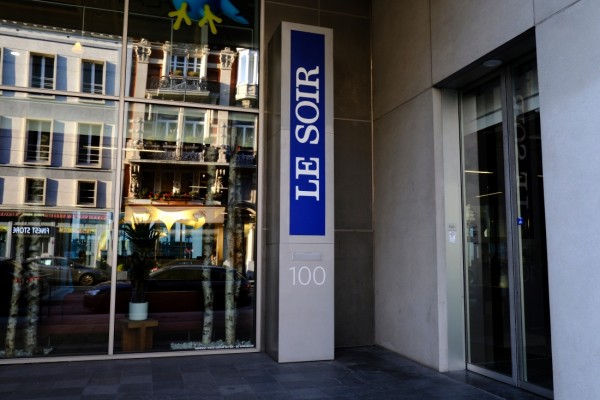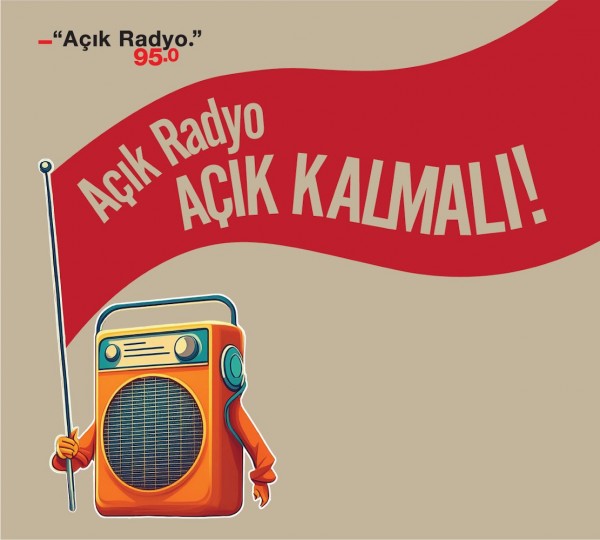Greek freelance journalist Anthi Pazianou found herself in the middle of an online abuse campaign in September after the leader of an extreme right-wing movement posted a photo of Pazianou with a refugee football team whose story she had recently covered along with other refugee-related issues on the Greek island of Lesbos. The post, which contained language demeaning Pazianou and questioning her status as a journalist, sparked a wave of insults and verbal sexual harassment, both online and in the streets.
During the harassment campaign, Pazianou sought help from her colleagues and a local journalist association. Neither she nor the association had clear steps in place to address the situation.
“Thankfully, we had the courage to go to the police and the prosecutor twice to ask for protection”, Pazianou told the International Press Institute (IPI) in a recent interview.
Pazianou said her employers showed compassion, but mostly wanted to follow the story as breaking news.
“It is also useful, of course, but it cannot give you the space to analyse the whole situation and the circumstances of the attacks”, Pazianou, who works for several Greek media outlets and international news agencies, said.
Pazianou was one of the numerous freelance journalists whom IPI interviewed over the past few months in countries across Europe – including Greece, Finland, Norway, Poland, Spain, Sweden and the UK – as part of IPI’s Ontheline project and the OSCE Representative on Freedom of the Media’s Safety of Female Journalists Online (SOFJO) initiative.
In Finland, Poland, Spain and the UK, the interviews were conducted as focus group discussions. The discussions included a total of 24 freelancers, both men and women, who worked for a range of broadcast and print media. As these focus groups were conducted under the Chatham House Rule, comments from them are quoted here anonymously.
Fear of losing job opportunities
The interviews reveal unique dangers that freelancers face related to the issue of online harassment. For one, freelancers in many cases lack a formal support network or guidelines on how to respond, as in Pazianou’s case.
“I feel so much more vulnerable than as staff writer, even though I don’t write about some hot topics”, one UK freelancer commented.
Freelancers also told IPI that they often avoid speaking about incidents of online harassment to their clients for fear of being perceived as “difficult” and thus losing important contacts and job opportunities.
“There is a fear that they will not call you for other collaborations because they think you can be a problematic, conflictive or radical person”, one Spanish freelance journalist said.
The pressure not to tell clients about online harassment is greater for less experienced freelancers. More established journalists said they were more confident in their ability to continue working even though speaking out about online harassment could close some doors in the job market.
Another issue is that freelancers find it difficult to protect themselves from online hate because social media is an important – and often indispensable – part of their work.
“Internet and social networks were the medium in which I worked”, as one Spanish freelancer put it. “I couldn’t close [my account on] Twitter because I lived on that.”
These experiences have an effect on which stories freelance journalists choose to cover. Some female freelancers reported having forwarded certain stories related to the harassment of women to their male colleagues to avoid being harassed themselves.
“It ultimately puts me out of pocket because no one will know that it was me who gave him the story”, one female British freelance journalist said. “But it is not worth the hassle to go on with the story.”
Learning to better recognize the threats
Many freelance journalists felt that media organizations did not offer sufficient support measures to them, including a set of steps to follow if targeted by harassment.
Media organizations with which IPI spoke during recent trips to Finland, Poland, Spain and the UK largely expressed a commitment to providing support to freelancers, with many saying they did so already. This was particularly true for larger media organizations that have already adopted internal protocols to address online attacks. Smaller media outlets with fewer resources said they tried to fight the impact of online harassment by staying in regular contact with freelancers and seeking to strengthen informal bonds with them.
In some cases, freelancers may be unaware of the support offered by media outlets. Catalina Cortés, senior programme officer for safety at the Rory Peck Trust, which focuses on the safety of freelance newsgatherers, added that both freelancers and media outlets still often do not recognize the point at which online harassment turns into a concrete threat requiring support. She told IPI that this general inexperience in addressing online harassment could be one reason for the information gap.
More preventive actions needed
There are several ways in which freelance journalists, media organizations and journalist associations can better prevent and fight online harassment. Joining forces with other self-employed and staff journalists can be a simple way to prevent isolation in the face of online harassment. Interviewees noted positive experiences in which experiences of online harassment are shared and discussed in closed Facebook groups dedicated to freelancers, for example.
“We have colleagues, we are not alone”, one Finnish freelance journalist said, commenting on the importance of these discussions.
Freelancers also told IPI that they share knowledge of digital safety measures with one another, such as protecting their email and social media accounts from potential hacking, and muting abusive users. To make this information easier to access, some freelancers suggested creating a consortium that would provide freelancer journalists and other journalists with a set of guidelines.
Still, some freelancers highlighted the limits of this kind of informal support. One Polish journalist who was attacked on Twitter said that while her colleagues tried to be sympathetic, they were ill-equipped to offer her the psychosocial support that she needed.
Freelance journalists offered different responses in terms of what type of support they expected from media outlets. One interviewee proposed that media organizations send their guidelines regarding online harassment along other documents whenever they collaborate with a new freelancer.
Catalina Cortés and Jennifer Adams, a media freedom project officer in the Office of the OSCE Representative on Freedom of the Media, said media organizations should adopt a clear protocol for journalists targeted with online harassment that can later be shared with freelancers. This strategy should cover moderation and digital security assistance, a clear chain of command for reporting the abuse, and information on legal and police support, Adams detailed.
Cortés added that these strategies should focus more on preventive actions in addressing online harassment and cover not only physical but also psychosocial impact.
For their part, journalist associations should organize more peer support events for harassed freelance journalits as well as better communicate the needs of freelancers to media houses. Adams suggested that journalists’ unions and other organizations, such as journalism programmes at universities, could also gather and share resources on digital security, trauma, legal support, advocacy, and counter-speech initiatives.
“It is striking to me that many freelancers have never had a training on digital security, for example”, Adams said. “This is where unions could really help fill a needed gap.”
As for freelance journalists, Cortés said that freelance journalists should be prepared for reactions that their reporting or social media posts might provoke and prepare for it accordingly, including by reviewing privacy settings and passwords and having accounts verified on social media. The Rory Peck Trust recently listed some best practices for freelance journalists in its digital security guide.
“It is not that you need to moderate your content”, Cortés said. “It is that you have to be aware that there will be a reaction.”
Article by Sanna Pekkonen, Helsingin Sanomat Foundation Journalism Fellow at IPI; interviews by Sanna Pekkonen; Alma Onali, former Helsingin Sanomat Foundation Journalism Fellow at IPI; and IPI Digital Media Coordinator Javier Luque.



